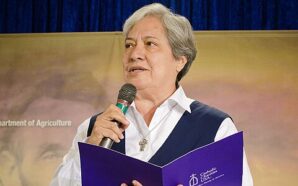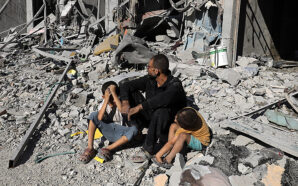Homily for the 29th Sunday in Ordinary Time
20 October 2024
Readings: Isaiah 53:10-11; Psalm 33; Hebrews 4:14-16; Mark 10:35-45
In today’s gospel, Jesus tells the disciples: ‘You know that those who are recognised as rulers over the Gentiles lord it over them, and their great ones make their authority over them felt. But it shall not be so among you. Rather, whoever wishes to be great among you will be your servant; whoever wishes to be first among you will be the slave of all.’
To put it mildly, there has been some firm assertion of authority by the hierarchy of our church as we come to the pointy end of the Synod on Synodality, especially on the question of women’s participation in sacramental ministry.
Listen at https://soundcloud.com/frank-brennan-6/homily-201024
The Synthesis Report issued after last year’s session of the synod spoke of the need to ensure ‘that women can participate in decision-making processes and assume roles of responsibility in pastoral care and ministry’. Cardinal McElroy from the USA made the point that of the 81 proposals voted on at that session of the synod, ‘There’s only one that’s called urgent. And that is bringing women into greater roles of leadership at all levels of the church. Not a single one has the word urgent or any equivalent word except for that one.’
The section of last year’s Synthesis Report entitled ‘Women in the Life and Mission of the Church’ stated:
‘Different positions have been expressed regarding women’s access to the diaconal ministry. For some, this step would be unacceptable because they consider it a discontinuity with Tradition. For others, however, opening access for women to the diaconate would restore the practice of the Early Church. Others still, discern it as an appropriate and necessary response to the signs of the times, faithful to the Tradition, and one that would find an echo in the hearts of many who seek new energy and vitality in the Church. Some express concern that the request speaks of a worrying anthropological confusion, which, if granted, would marry the Church to the spirit of the age.’
On the first day of this year’s session, Cardinal Victor Manuel Fernández, prefect of the Vatican’s Dicastery for the Doctrine of the Faith, took the issue of women’s ordination off the table announcing, ‘We would like to share from the outset that, based on the analysis conducted so far – which also takes into account the work done by the two Commissions established by Pope Francis on the female diaconate – the dicastery judges that there is still no room for a positive decision by the Magisterium regarding the access of women to the diaconate, understood as a degree of the Sacrament of Holy Orders. The Holy Father himself recently confirmed this consideration publicly. In any event, the Dicastery judges that the opportunity to continue the work of in-depth study remains open.’ So much for urgency.
On the third day of this session, our own Bishop Anthony Randazzo, the Bishop of Broken Bay and President of the Federation of Catholic Bishops Conferences of Oceania and member of the Synod Information Commission, addressed the international media with some gusto.
He told the press conference that ‘when we talk about synodality we are caught up in many issues which I term as ‘niche Church issues’ that often emerge in Europe or North America, often out of church and communities that have great wealth, great access to technology, resources; and those issues become all consuming and focusing for people to the point that they then become an imposition on people who sometimes struggle simply to feed their families, to be able to survive the rising sea levels or the dangerous journeys across wild oceans, trying to resettle in new lands.’ He described this as ‘a new form of colonialism’ that oppresses the most vulnerable people. He went on to speak about the need for the synod to focus on issues such as climate change, migration, and domestic violence – issues on which we would all agree, a synod meeting in Rome would have little, if any, impact.
When asked to identify the distracting niche Church issues, he responded in a very non-Roman way: ‘I thought someone might want to pick at that scab’. There were two issues he could think of immediately: the call for more transparent, participative governance in the Church and the call for the ordination of women. Unlike the other issues he had raised, these are issues within the sole domain of the Church – issues about which a synod meeting in Rome could have great impact, issues on which the Pope could be provided synodal feedback when discerning whether there is a need to develop the teaching and practice of the church’s Magisterium.
In relation to the niche issue of women in the Church, Bishop Randazzo said:
‘There is a question with regards ordination that has been going on and on and on for years, not just for the Synod. The Holy Father has asked for it to be studied on more than one occasion, and there is a study group at the moment that he has asked for, to take it aside from the floor at the moment, not to remove it from the conversation but ….to go more deeply into it, to actually see what’s there. At the moment, when we talk about women in the church, that’s the hot button issue. And as a consequence, women who in many parts of the church and world are treated as second class citizens are totally ignored. This is scandalous – in the church and in the world. All because a small minority with a large powerful Western voice are obsessed with pushing this issue. I have no problems with this issue being talked about and studied as the Holy Father has rightly said. But at the cost of the dignity of women in the church and in the world – absolutely not. When women are pushed to the margins into places of poverty, violence – domestic or social, when their work opportunities are narrowed, and they are excluded from the participation in the community and in the church, this is a scandal against the gospel, and we must speak into this rather than being obsessed always by this other issue. Let the other issue be studied but for Heaven’s sake, in the name of Jesus, can we look after and include our women, can we stop talking about women, and listen to, and speak with women. This is how the church is called to act. Look at Jesus in the Gospel. He walks with them, he talks with them, he eats with them, he listens to them, he includes them in the life of the Gospel. Are we not called to do the same. These are two niche issues. I hope there’s enough there for you.’
I am not a woman, but I was left with the sense that both Cardinal Fernández and Bishop Randazzo were making their authority felt. Could we not attend to this so called church niche issue while at the same time advocating on issues such as climate change, migration, and domestic violence? Could we not consider the issue of women’s ordination while at the same time being attentive to women in places of poverty and violence, and to women whose work opportunities are narrowed in society and in church? Could we not listen to women and speak with women when deciding ‘where to next’ with the question of ordination in the Catholic Church?
Today is World Mission Day. Pope Francis has told us: ‘While the world sets before us the various “banquets” of consumerism, selfish comfort, the accumulation of wealth and individualism, the Gospel calls everyone to the divine banquet, marked by joy, sharing, justice and fraternity in communion with God and with others.’ All of us, men and women alike, whether we be from the west or the Pacific, whether we be advocates, opponents or ambivalent observers of women’s ordination, are called to the banquet marked by joy, sharing, justice and fraternity.
Despairing the tone of Bishop Randazzo’s remarks, I was consoled during the week on the feast of Teresa of Avila who had this bookmark in her Brieviary:
Let nothing worry you;
Nothing dismay you;
Everything passes;
God does not change.
If you have patience
You can do anything.
Those who have God
Want for nothing.
God alone is enough.
During this last week of the Synod, calling to mind the second reading from Hebrews: ‘let us confidently approach the throne of grace to receive mercy and to find grace for timely help.’
1 XVI Ordinary General Assembly of the Synod of Bishops, First Session, A Synodal Church in Mission: Synthesis Report, p. 20
2 See https://www.ncronline.org/vatican/vatican-news/exclusive-cardinals-cupich-mcelroy-say-impossible-go-back-synods-without-lay
3 XVI Ordinary General Assembly of the Synod of Bishops, First Session, A Synodal Church in Mission: Synthesis Report, 20.
4 https://cruxnow.com/vatican/2024/10/as-synod-opens-vatican-says-no-to-women-deacons








